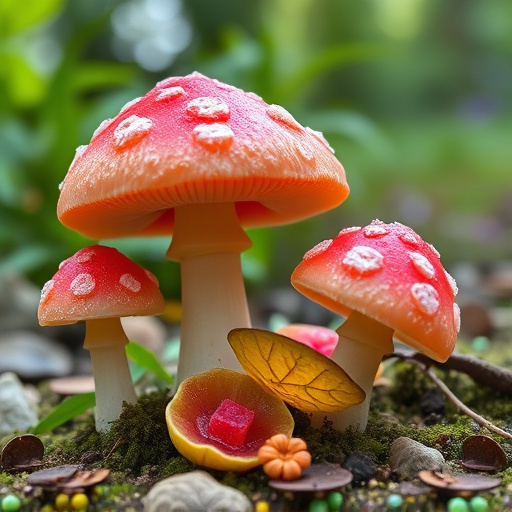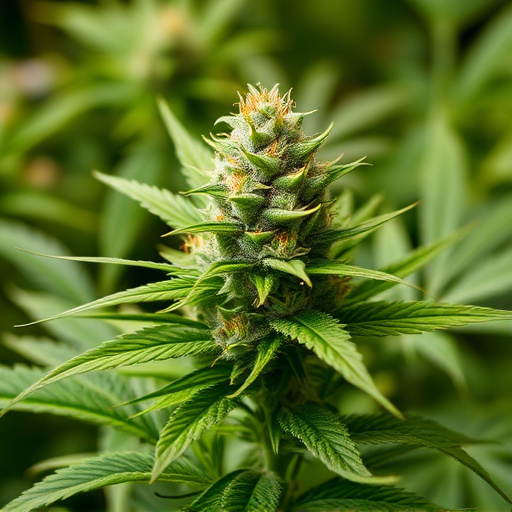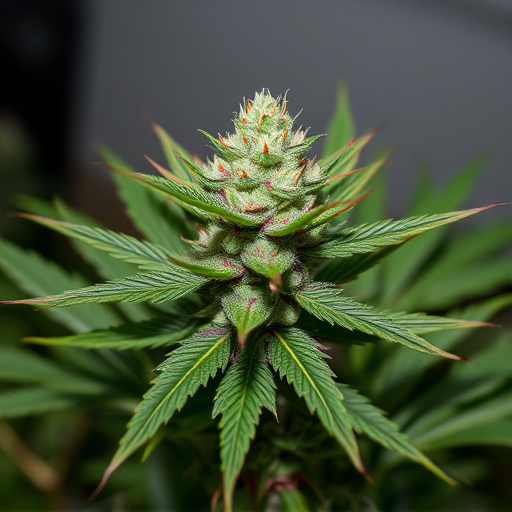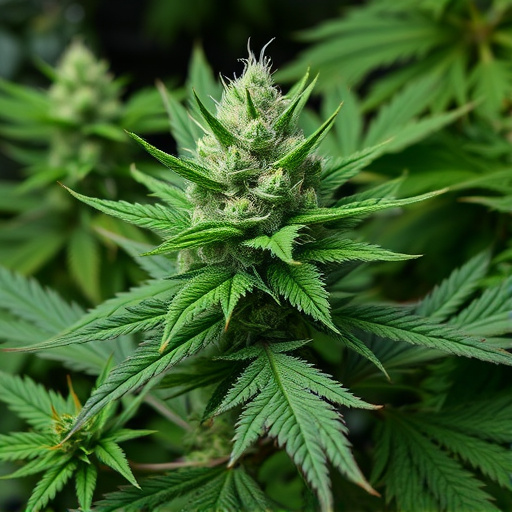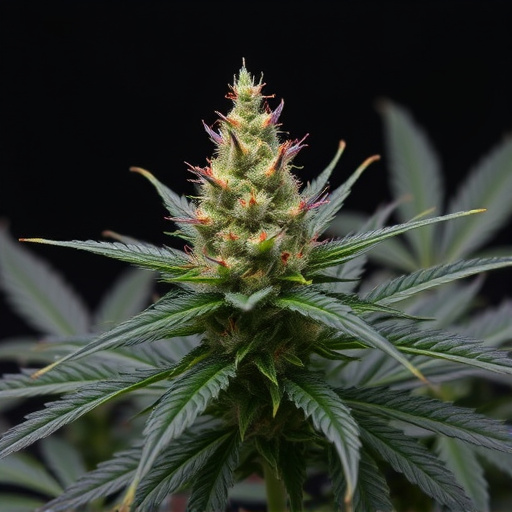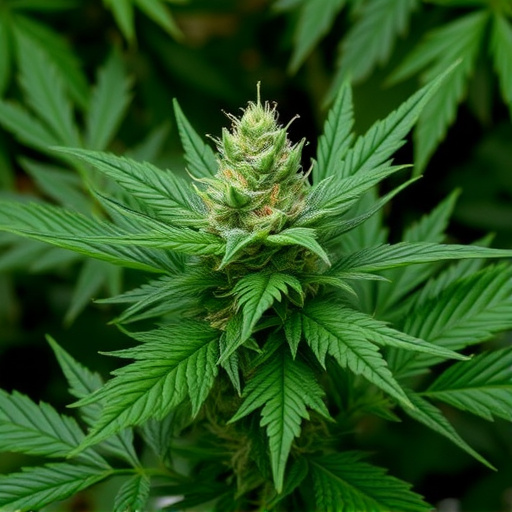The complex chemical composition of cannabis flower, varying by strain type (Indica, Sativa, Hybrid), includes cannabinoids like CBD and terpenes affecting mental health benefits. Indica strains offer calming effects due to higher Myrcene and Terpinolene levels, while Sativa varieties enhance cognitive function with Limonene and Pinene. Hybrid strains provide a balanced experience targeting specific issues. Individual responses vary based on genetics, age, health, dosage, and THC/CBD content. More research is needed to establish optimal therapeutic applications, risks, and long-term effects for safe cannabis use in mental health treatment, emphasizing the importance of consulting healthcare professionals before exploring types of cannabis strains.
Can cannabis flower offer a natural path to improved mental well-being? This question has gained significant interest as the discourse around cannabis shifts. This article explores the potential benefits of cannabis flower for mental health, delving into its various components and how different types of cannabis strains can affect mood, anxiety, and other psychological states. We discuss current research insights and highlight areas demanding further exploration, including considerations for safe and effective use.
- Understanding Cannabis Flower and its Components
- The Impact of Different Cannabis Strains on Mental Health
- Considerations and Future Research Directions
Understanding Cannabis Flower and its Components

Cannabis flower, derived from the plant Cannabis sativa, is a complex compound containing various chemical compounds, notably cannabinoids and terpenes. These compounds contribute to the unique effects experienced when consuming cannabis. Different types of cannabis strains vary in their cannabinoid profiles, offering diverse therapeutic potential. For instance, Indica strains tend to have higher levels of Myrcene and Terpinolene, known for their calming and relaxing properties, while Sativa varieties often boast higher concentrations of Limonene and Pinene, which are associated with enhanced cognitive function and energy boosts.
Understanding the specific cannabinoid content in different cannabis strains is crucial when exploring its potential benefits for mental health. Research suggests that certain cannabinoids, such as Cannabidiol (CBD), may help reduce anxiety, depression, and inflammation, offering a glimmer of hope for individuals seeking alternative treatments. However, it’s essential to approach this topic with caution and consult healthcare professionals before considering cannabis as a complementary therapy.
The Impact of Different Cannabis Strains on Mental Health
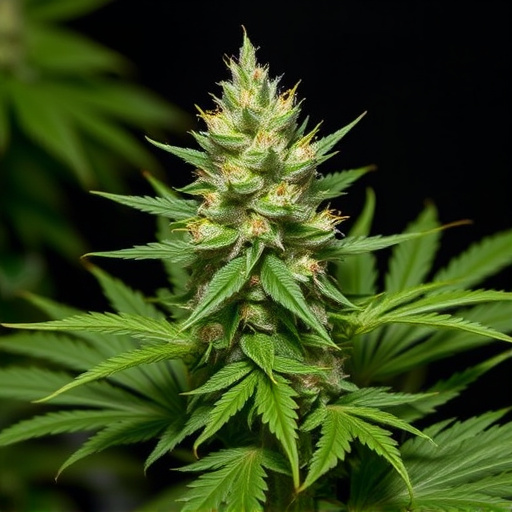
Cannabis flower, with its diverse range of chemical profiles, offers a unique experience for users seeking mental health benefits. Different types of cannabis strains are known to interact with the human endocannabinoid system in various ways, potentially influencing mood, anxiety, and cognitive functions. Sativa strains, often associated with energy and creativity, may help alleviate symptoms of depression and promote focus. Indica strains, on the other hand, with their calming effects, can reduce stress and improve sleep quality.
Hybrid strains, combining traits from both sativa and indica, provide a more balanced experience. These hybrids might offer targeted relief for specific mental health concerns, such as anxiety or PTSD, by combining the energizing properties of sativas with the relaxing effects of indicas. The impact of cannabis on mental health is complex and varies from person to person, underscoring the importance of exploring different types of cannabis strains to find the best fit for individual needs.
Considerations and Future Research Directions
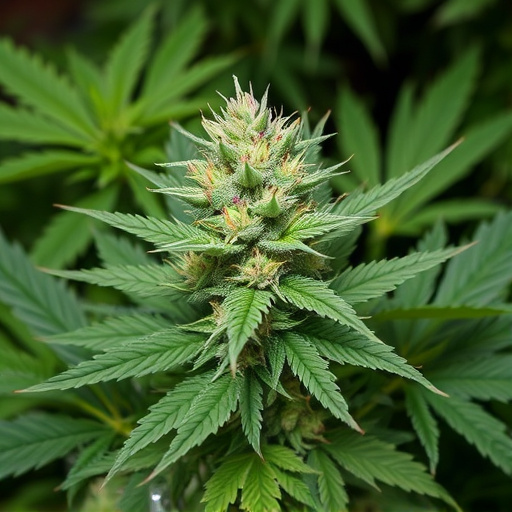
While there is growing evidence suggesting potential mental health benefits associated with cannabis flower, particularly for conditions like anxiety and depression, it’s crucial to consider a few factors when interpreting current research. Not all types of cannabis strains have the same effects; specific compounds like THC and CBD interact differently with our bodies and may yield varied outcomes. Individual responses vary greatly based on genetics, age, overall health, and dosage. Therefore, more comprehensive studies focusing on specific strains and their active ingredients are needed to understand optimal therapeutic applications.
Future research directions should also explore the potential risks and long-term effects of cannabis use, especially with regard to mental health. Investigating how cannabis interacts with other medications, its impact on cognitive function over time, and the development of dependence or tolerance are critical areas that require further attention. By delving into these aspects, scientists can provide a clearer picture of cannabis’ role in improving mental health while ensuring safe and effective use.
Cannabis flower, with its diverse components and varying types of cannabis strains, holds promise for potential mental health benefits. While current research provides valuable insights into its impact on specific conditions, further exploration is needed to fully understand its complex effects. Understanding the unique profiles of different cannabis strains can help guide future studies and ultimately enable informed decisions regarding its therapeutic use. As our knowledge expands, it’s crucial to consider both the potential advantages and any precautions required when exploring cannabis for mental health support.

